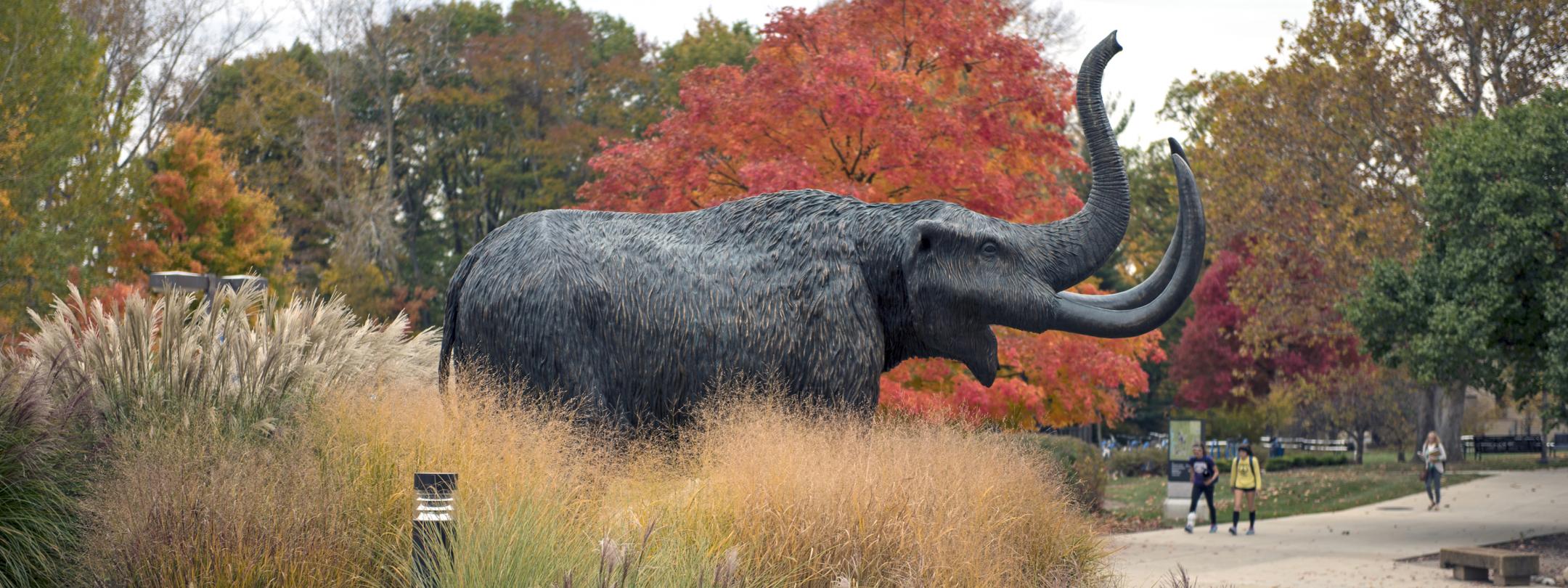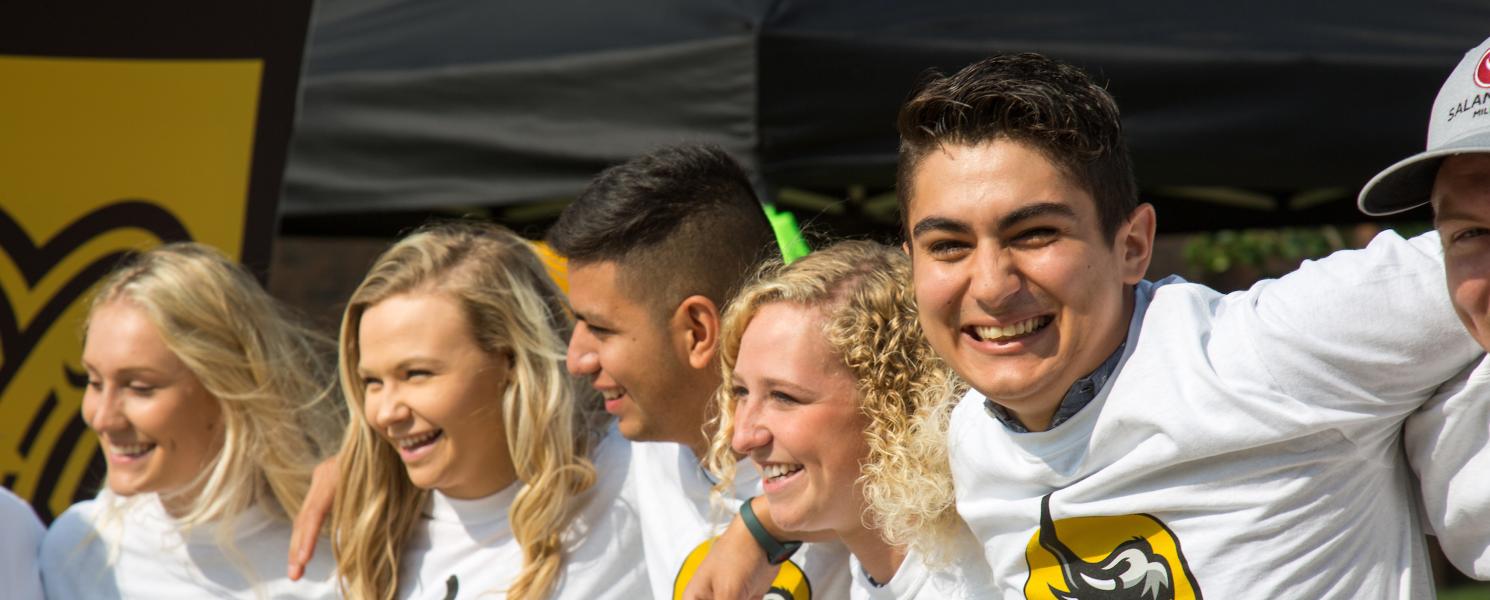
Beyond the Classroom
Department of Psychology
Maximize your college experience.
Delve into the world of psychological research. Present at a conference. Get hands-on experience in the community. Check out the many options you have to make the most of your time at Purdue Fort Wayne.


Research assistant opportunities
Elevate your understanding—and your résumé.
You can gain behind-the-scenes experience in psychological research by enrolling in PSY 49600 Readings and Research in Psychology. Graduate schools view research experience as one of the most important factors in admissions decisions. The course requirements vary depending on the professor, but most involve administering research sessions and/or data coding. You may even have the opportunity to contribute ideas to new projects and present research at a conference.
- Approach a professor whose research is most closely aligned with your interests. Research experience in social psychology will increase your chances for admission to a social Ph.D. program more so than will research in psychobiology, but any research is better than none.
- It is best to approach a professor who knows you from a class, but don’t hesitate to approach someone cold.
- Don’t take it personally if a professor says no. Most professors can accommodate only a small number of students, so if one turns you down, approach someone else.
- Be prepared to work hard on the research. New knowledge does not come easily.
- Be prepared to work responsibly. You might view the research as a semester’s project, but the professor with whom you work probably sees it as part of their lifework. The professor takes it very seriously, and you should do so as well.
- The requirements of a PSY 49600 Readings and Research in Psychology course (or equivalent) vary depending on the professor, but most require extensive data collection and/or analysis as well as an APA-style paper.
- Get involved with research early in your undergraduate career. This increases the chance of authoring a paper presented at a regional or national meeting, or even of serving as an author or coauthor on a published article.
Aggression in Interpersonal Relationships Lab
Examine physical, psychological, and sexual aggression, as well as the predictors and outcomes of these various forms of interpersonal violence. A one-year commitment is expected in this lab. For more information, contact Jody Ross, associate professor of psychology, at [email protected] or 260-481-6396.
Animal Cognition Lab
Investigate the use of behavioral tasks to understand learning and memory and explore the effects of prenatal alcohol exposure on the developing brain. For more information, contact Daren Kaiser, associate professor of psychology, at [email protected] or 260-481-6404.
Child Development and Family Studies Lab
Explore mothers’ and fathers’ contributions to children’s early cognitive and social-emotional development, including infant attachment and children’s social understanding. A one-year commitment is expected in this lab. For more information, contact Brenda Lundy, professor of psychology, at [email protected] or 260-481-6342.
Decision-making, Affect, and Applied Cognition Lab
Investigate how emotions affect human cognition and decision-making and how principles of decision science can be applied to real-world problems beyond the lab. For more information, contact Raymond Voss, assistant professor of psychology, at [email protected] or 260-481-6399.
Developmental Alcohol Exposure Lab
Examine firsthand the effects of prenatal alcohol exposure on the developing brain. A one-year commitment is expected in this lab. Visit the lab website and/or contact Amy Perkins, assistant professor of psychology, at [email protected] or 260-481-6210 if you’re interested in learning more
Intergroup Relations Lab
Investigate the cognitive, emotional, and behavioral tendencies people exhibit toward others as a function of group membership (e.g., us-vs.-them thinking, prejudice, stereotyping, and discrimination). Visit the lab website and/or contact Jay Jackson, professor of psychology, at [email protected] or 260-481-6401.
Sexuality and Relationships Lab
Examine adult sexual behavior and interpersonal relationships, with a focus on various types of romantic relationship partners. A one-year commitment is expected in this lab. For more information, contact Michelle Drouin, professor of psychology, at [email protected] or 260-481-6398.
Social Class and Mobility Lab
Explore how the complexities of social class and mobility shape identity, individual and group behaviors, and health outcomes. A one-year commitment is preferred in this lab. For more information, contact Patrick Murphy, assistant professor of psychology, at [email protected].
Teaching Assistant Opportunities
Gain in-class teaching experience.
In a teaching assistant position, you’ll be assigned to a section of PSY 12000 Elementary Psychology or PSY 14000 Critical Foundations for Psychology, and you’ll get to help support classroom learning under the supervision of a professor. Here are the criteria you need to meet to be considered:
- A minimum GPA of 3.2 in psychology courses
- An A in PSY 12000 Elementary Psychology
- Junior or senior standing
- Recommendation by psychology faculty (preferred, not required)
For more information, contact Michael Bendele, senior lecturer of psychology, at [email protected] or 260-481-6436 or Craig Hill, professor of psychology at [email protected] or 260-481-6402.

Field Experience Courses
Learning that goes out and about.
Sometimes you just need to experience it firsthand. Volunteer at a community agency while receiving guidance from your professor and your field placement supervisor. Start making a difference through the following courses:
Explore career interests in a real-world setting. You’ll spend six to nine hours each week at a community-based placement related to mental health, social services, education, or other areas that rely on an understanding of human behavior. You’ll submit a weekly electronic report of your activity, and your supervisor at the agency will conduct two evaluations. There are no class meeting times; your hours are completed at your field experience agency. Prerequisites are PSY 12000 plus one more psychology course, each with a grade of C- or better; see catalog course description for list of approved courses. For more information, contact Jody Ross, associate professor of psychology, at [email protected].
Explore the field of clinical neuropsychology through coursework on the principles of assessment of human memory and weekly observations at a community-based clinic that specializes in neuropsychological testing. At the culmination, you’ll be able to apply your knowledge of test administration and scoring by administering tests to a mock patient. Prerequisites are PSY 12000 and PSY 20100 with grades of C- or better and junior or senior class standing. For more info, contact Dr. Jody Ross at [email protected].
This field experience class will expose you to the fast-growing field of applied behavior analysis (ABA). You’ll learn about ABA through online class lectures, and see ABA in action at an autism center in the community where behavioral principles are used to increase adaptive behavior in children with autism spectrum disorder. This course is taken as a culminating course for the behavior analysis and techniques certificate, so you must have already taken three required courses in psychology. For more information about the certificate, contact Jody Ross, associate professor of psychology, at [email protected].
Jobs And Internships
For the experience you need.
Whether you’re looking for a part-time job on campus or a full-time job after graduation, we have lots of options.
Internships come in two flavors: paid and unpaid. Check out what’s available now, and look back often for more opportunities.


Study Abroad
Let the world be your classroom.
Your college experience is special—and uniquely yours. Imagine enhancing it by taking your studies overseas. Living and learning in a different country will foster both your independence and your personal development. Through this experience, and the knowledge you’ll gain living like a local, you’ll emerge with a new perspective.
